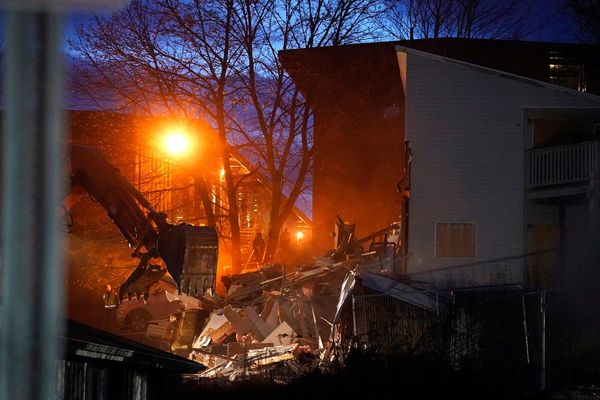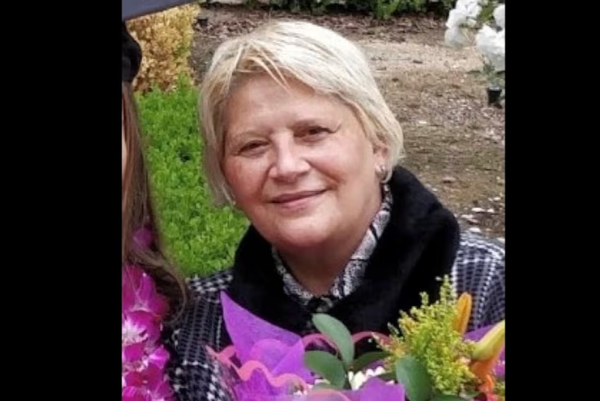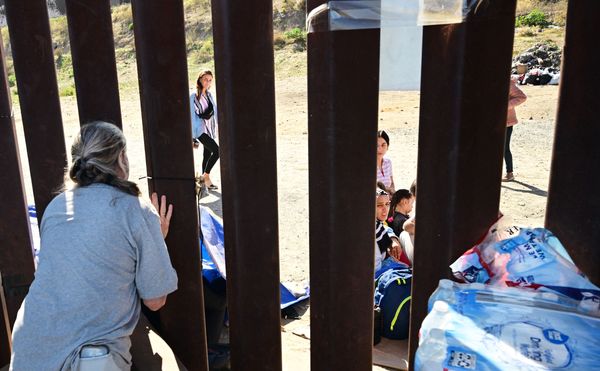
Based on Prime Minister Benjamin Netanyahu’s narrative, South Tel Aviv’s high levels of poverty, prostitution, drugs and general infrastructural decline is almost wholly attributable to the thousands of African asylum seekers from war-torn Sudan and Eritrea.
However, three months after Netanyahu vowed to “give back” the dystopian neighborhood to Israelis by deporting thousands of “illegal infiltrators,” residents living there contend he is cynically scapegoating a defenseless population for the government’s own negligence.
Indeed, instead of addressing the systemic and longstanding municipal neglect that predates the African refugees living there by decades, a cross-section of Israelis on Sunday said Netanyahu is abdicating responsibility for a problem of his own making.
Bella, a 69-year-old lifelong resident of South Tel Aviv, who works across the street from the seedy location where Netanyahu “toured” the beleaguered community in September, noted that all the refugees were transported to the area by the government after entering Israel.
“They were given a one-way bus ticket here by the government once they entered the country and now are being blamed for living there,” she said. “They put them here and now would rather deport them than take care of them.”
Bella continued: “I think the solution is for the government to spread them out throughout the country instead of putting 40,000 in one small area. It’s not good that they all live together in ghettos, and it makes them easy targets for problems that were here before they arrived.”
Asked if she blames the refugees for the morbid climate, Bella replied that the government is responsible for the area’s ongoing neglect.
“The government is to blame for the drugs, crime, prostitution and other problems here,” she said. “These people [African refugees] are not looking for problems; they wanted to flee violence and work hard to support themselves. Where is the humanity?”
Yael Shavit, a 59-year-old documentary producer who has also lived in South Tel Aviv her entire life, echoed Bella’s sentiments.
“I know this entire neighborhood very well, and the problem is that it has always been where the poor, drug addicts and prostitutes live,” she said. “The Africans didn’t create this problem – they were just put in the middle of it by the government.
“Now, the government is claiming that they are the problem, and it’s not fair. If you let them into the country then you must take care of them. It is easy to see that they are being blamed because they are black and not Jewish. It’s racism – I’m sure of it.”
Moreover, Shavit said that the situation was similarly dire 50 years ago, well before African refugees came to Israel in large numbers to flee genocide.
“The government chooses to forget what happened here when [the African asylum seekers] were not living here,” she said. “When I was a girl you could not walk around here at night, and there were no African refugees then.
“But the government doesn’t want to take responsibility for the problems by working with the community to revitalize the area. Instead, they are claiming it will be solved by kicking the Africans out, and that’s not true.”
Moti Katz, a neighborhood activist, helped arrange demonstrations during Netanyahu’s September visit to protest what he deemed the prime minister’s scapegoating of the refugee community.
“The neighborhood has always had a lot of problems, it’s not because of the immigrants,” said Katz. “We have always had a lot of crime and a lot of prostitution and junkies… and then the government put about 40,000 [African asylum seekers] into one neighborhood, so the government did this.”
And yet, despite ongoing attempts by right-wing politicians to dehumanize the refugees as “infiltrators” responsible for the crisis, Katz said residents of South Tel Aviv remain unmoved by such incendiary rhetoric.
“We protested then [in September] because we are angry that Netanyahu lives in a rich neighborhood like Rehavia, and then he comes here to blame people he put here without taking responsibility for decades of decline,” he said.
“We don’t have anything against [refugees], and we hope the government will solve the problem by spreading them around the country instead of deporting them to Rwanda,” Katz said. “If you put 1,000 or 2,000 immigrants here and there, then there is no problem. But by putting 40,000 in one area, of course there is going to be a problem.”







